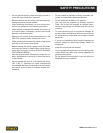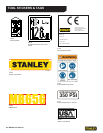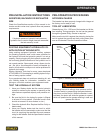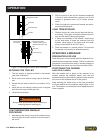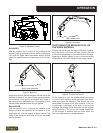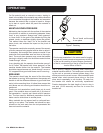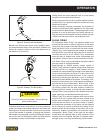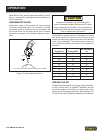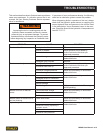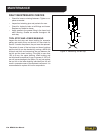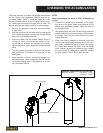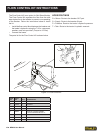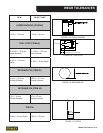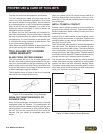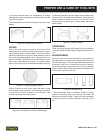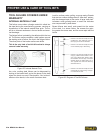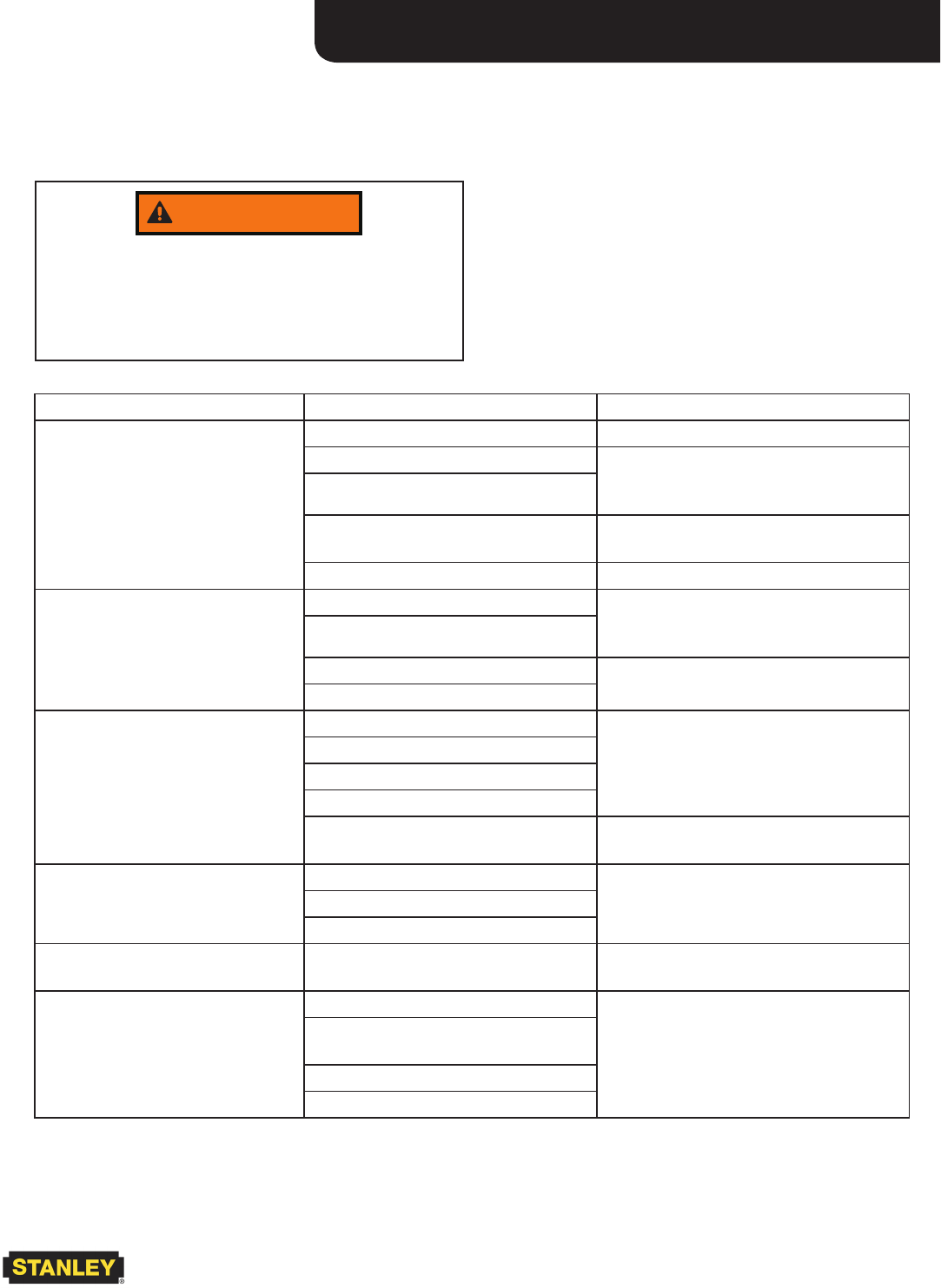
MB656 User Manual ◄ 15
TROUBLESHOOTING
This section describes how to nd and resolve problems
users may experience. If a situation occurs that is not
covered, call your Stanley Customer Service represen-
tative for assistance.
PROBLEM CAUSE SOLUTION
Breaker will not re. Low hydraulic oil level. Fill reservoir.
No ow to breaker. Have hydraulic circuit tested by
authorized dealer/distributor per
approved procedure.
Main relief set low.
Internal damage. Have unit serviced by an authorized
dealer/distributor.
Damaged quick couplers. Replace.
Breaker runs slowly. Low hydraulic ow Have hydraulic circuit tested by an
authorized dealer/distributor per
approved procedure.
Excessive heat build up.
Excessive nitrogen pressure. Have unit serviced by an authorized
dealer/distributor.
Internal leakage.
Breaker runs erratically. Low or excessive back-pressure. Have carrier serviced by an authorized
dealer/distributor.
Damaged switch or connection.
Relief set too low.
Internal damage.
Tool binding. Add grease to tool shank. Do not pry
while operating.
Breaker runs but at reduced
power.
Low accumulator charge. Have unit serviced by an authorized
dealer/distributor.
Excessive back-pressure.
Relief set too low.
Breaker leaks oil around tool bit
and tool bushing.
Lower seals failed. Have unit serviced by an authorized
dealer/distributor.
Hydraulic system overheats. Main relief set low. Have unit serviced by an authorized
dealer/distributor.
Insufcient cooling capability in
hydraulic circuit.
Line/hose size too small.
Excessive back-pressure.
If symptoms of poor performance develop, the following
chart can be used as a guide to correct the problem.
When diagnosing faults in operation of the tool, always
check that the hydraulic power source is supplying the
correct hydraulic ow and pressure to the tool as listed
in the table below. Use a owmeter known to be accu-
rate. Check the ow with the hydraulic oil temperature at
least 80 °F/27 °C.
WARNING
Inspecting the tool or installing parts with the
hydraulic hoses connected can result in severe
personal injury or equipment damage. To prevent
accidental startup, disconnect the hydraulic power
before beginning any inspection or installation task.



